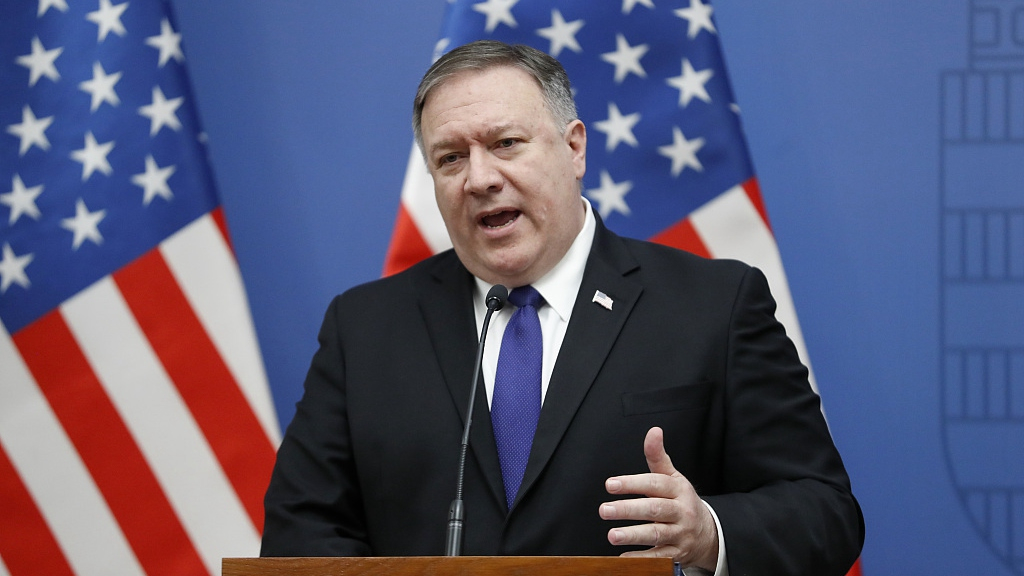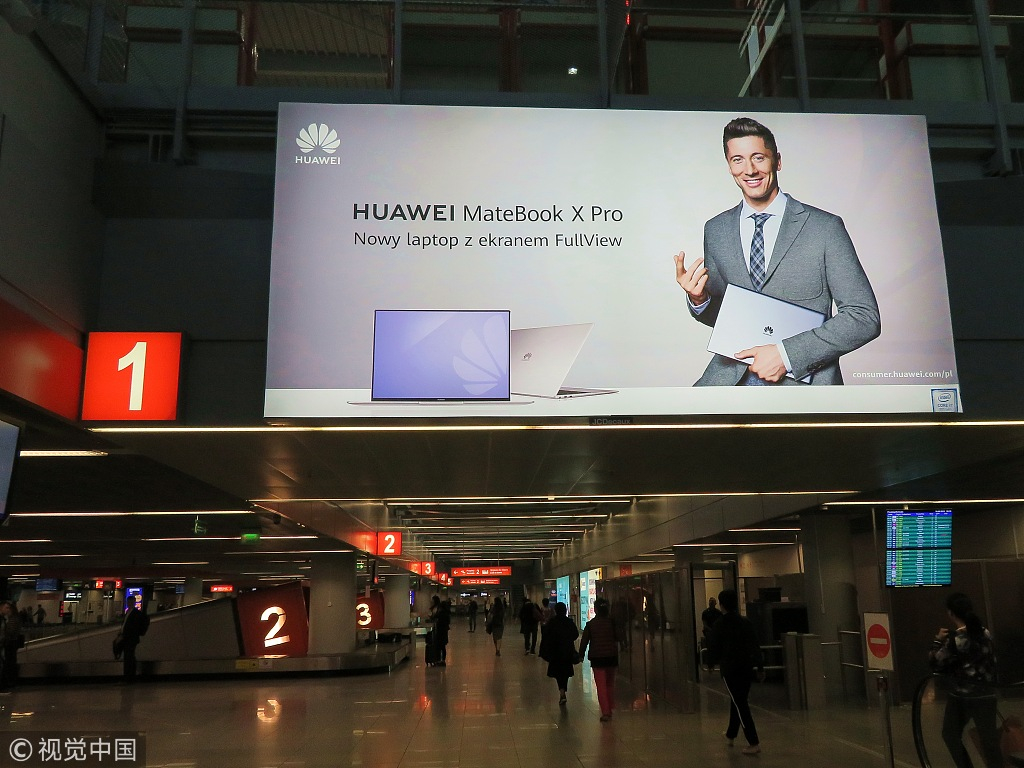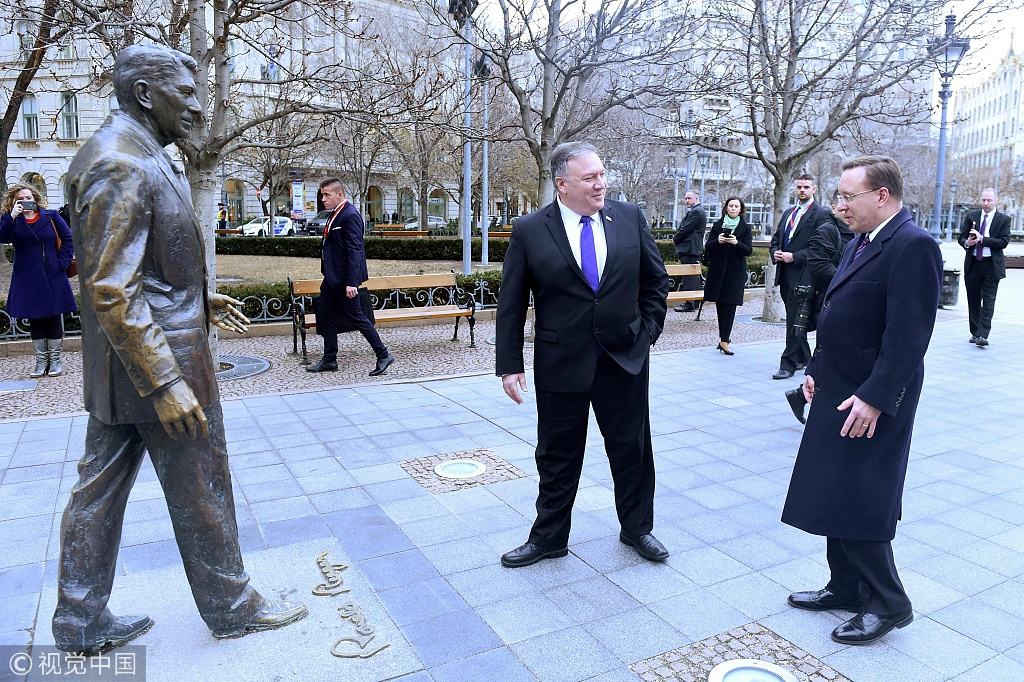
Opinion
23:02, 15-Feb-2019
Central and Eastern European countries will not swallow Pompeo’s bait
Updated
09:09, 16-Feb-2019
Kang Jie

Editor's note: Kang Jie is an assistant research fellow at the China Institute of International Studies. The article reflects the author's opinion, and not necessarily the views of CGTN.
U.S. Secretary of State Mike Pompeo has just finished his visit to 3 Visegrád countries that used to be forgotten in Washington's foreign policy agenda. One of the strategic aims behind his visit was to take advantage of Poland, Slovakia, and Hungary's needs for defense cooperation, and drive a wedge between them and China.
By announcing unfounded accusations of data leakage upon the pioneer of the 5G networks Huawei, the Trump administration has turned the issue of fair technology and marketing competition into a campaign of coercive diplomacy targeting its own allies. Mr. Pompeo warned the Central and Eastern European countries that their telecommunication cooperation with Huawei could undermine their military ties with the U.S.

A Huawei Ad at the Poland Warsaw airport. /VCG Photo
A Huawei Ad at the Poland Warsaw airport. /VCG Photo
Central and Eastern European (CEE) countries do need a defense partnership with the U.S. though. Poland is increasingly anxious about the future military conflict with Russia, which contributes to its solid following with the U.S. NATO integration strategy in recent years. Poland has accepted the deployment of U.S. missile defense complex in its territory and has offered to establish a permanent U.S. military base. Hungary and Slovakia are planning to update their air forces and air defense capabilities, in which Lockheed Martin may be the potential contractor.
Nevertheless, CEE countries may not drag themselves into the competition of next-generation telecommunication networks. Other European 5G networks suppliers such as Nokia and Ericsson, are not as competitive as Huawei in cost and reliability. The telecommunications industries of all 3 countries have good cooperation with Huawei. Shunning business with Huawei can be harmful to information technology upgrades in these countries.
Hungary and Slovakia, while having demands for cut-priced U.S. weapons, maintain a relatively balanced and independent foreign policy. Both countries enjoy many economic benefits of keeping a special relationship with Russia despite U.S. sanctions. Hungary and Slovakia will not follow Mr. Pompeo's prescription of choosing a side between China and the U.S.

US Secretary of State Mike Pompeo (C) is pictured next to the statue of the former US President Ronald Reagan at the Liberty square (Szabadsag) in Budapest on February 11, 2019. /VCG Photo
US Secretary of State Mike Pompeo (C) is pictured next to the statue of the former US President Ronald Reagan at the Liberty square (Szabadsag) in Budapest on February 11, 2019. /VCG Photo
As for Poland, the country plays an active role in the EU and has become the largest trading partner of China in Central and Eastern Europe. It has an ambitious roadmap for future economic development, with re-industrialization and the innovative industries as its top priorities. Huawei's cooperation with the Polish telecommunications industry can help Poland better participate in the global digital revolution.
In addition, Huawei is ready to establish a cybersecurity center in Poland as a trusted solution, providing the Polish Cyber Security agency with the capabilities to examine and test Huawei's equipment at any time. Similar facilities have also been built in Germany, UK, and Brussels.
The Polish government has maintained a good relationship with China. Poland has been a leading participant in the “16+1” mechanism and the “Belt and Road” initiative. Polish goods, such as milk, apples, and jams, have been gradually entering into the Chinese market. China-Poland cooperation is beneficial to the interests of the two peoples. As an emerging economy, innovation and development are the most essential interests for Poland.
(If you want to contribute and have specific expertise, please contact us at opinions@cgtn.com)

SITEMAP
Copyright © 2018 CGTN. Beijing ICP prepared NO.16065310-3
Copyright © 2018 CGTN. Beijing ICP prepared NO.16065310-3